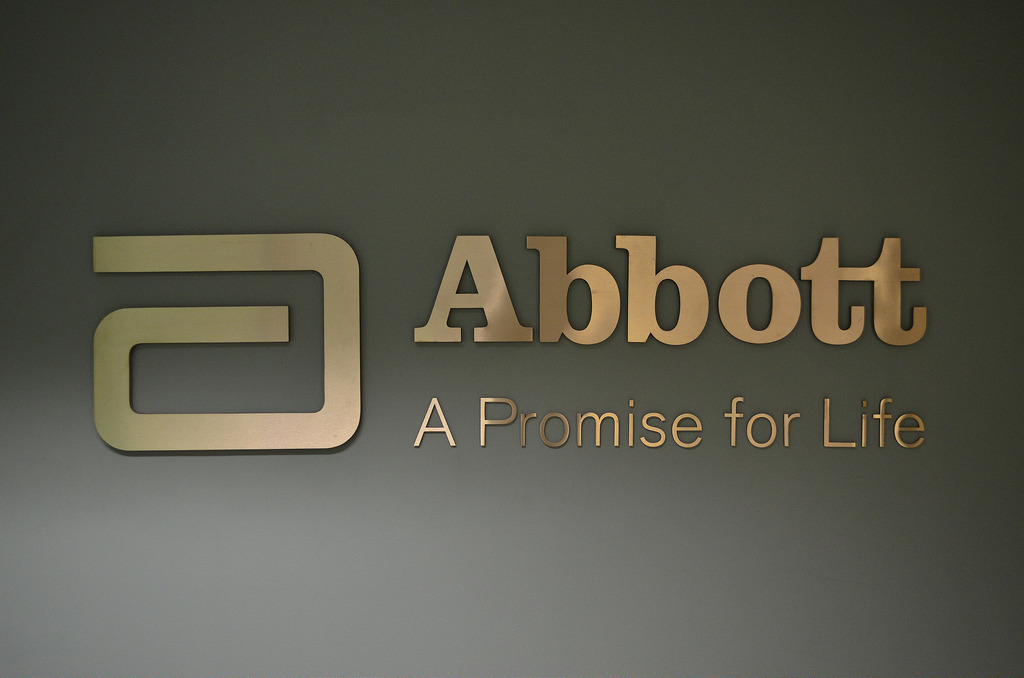The deal between the two companies was announced in February 2016. Under the original terms of the agreement, Abbott had to pay $ 56 for each ordinary share of Alere, or $ 5.8 billion in cash. Alere will become Abbott’s division after the deal ends. It is expected that after the transaction will make Abbott the leading provider in the field of diagnostics, and its sales in this segment will exceed $ 7 billion dollars per year.
Later, Alere suggested reducing the transaction value to $ 51 per share due to some internal problems, and Abbott agreed to the offer. These conditions, despite the price reduction, will be favorable for Alere. Thus, the new price represents a significant premium to the value of the company's securities. At the close of trading on Thursday, shares of Alere were worth $ 42.31.
Alere develops and produces rapid tests, including for influenza and streptococcus. The international pharmaceutical company Abbott develops and manufactures products and technologies that cover all areas of health care.
In January, the European Commission approved the deal, provided that Alere sells the unit that manufactures Epoc and Triage blood testing equipment, as well as its business to produce reagents for testing natriuretic peptides (a marker of heart failure).
"Doctors and patients around the world use tests to quickly and accurately identify diseases and monitor health status," said European Commissioner for Competition Margrethe Vestager. "This solution will provide choice and competitive prices in the fast-growing market for small portable test analyzers."
In 2016, the pharmaceutical industry and the medical technology sector completed transactions for $ 500 billion, which is 9% of all transactions in the world. This is stated in an annual review "Annual Review of Global Healthcare" of investment company Arterial Capital Management (ACM) with reference to Dealogic’s data. The amount of transactions with pharmaceutical companies and in the medical technology sector fell by 34% compared to 2015, the average size - $ 383 million versus $ 543 million a year ago, but still it is 10% higher than the average for the last 10 years.
The bulk of the deals came in the industry of pharmaceuticals - $ 297 billion, mainly in North America. The main buyers were strategic investors, that is, the pharmaceutical companies themselves or distributors (86% of transactions).
The largest transaction for 2016 was an agreement on acquisition between Shire and Baxalta, worth more than $ 32 billion. The transaction was closed in June 2016. It is expected that the merged company will become the world's largest in the field of treating patients with rare diseases.
The second, most significant M&A deal of 2016 was AbbVie - Stemcentrx agreement on acquisition for $ 9.8 billion, which was announced in April 2016. The transaction was closed on July 19, 2016. The agreement allowed AbbVie to replenish its product portfolio with a promising candidate for a drugs intended for therapy of small cell lung cancer.
source: bloomberg.com
Later, Alere suggested reducing the transaction value to $ 51 per share due to some internal problems, and Abbott agreed to the offer. These conditions, despite the price reduction, will be favorable for Alere. Thus, the new price represents a significant premium to the value of the company's securities. At the close of trading on Thursday, shares of Alere were worth $ 42.31.
Alere develops and produces rapid tests, including for influenza and streptococcus. The international pharmaceutical company Abbott develops and manufactures products and technologies that cover all areas of health care.
In January, the European Commission approved the deal, provided that Alere sells the unit that manufactures Epoc and Triage blood testing equipment, as well as its business to produce reagents for testing natriuretic peptides (a marker of heart failure).
"Doctors and patients around the world use tests to quickly and accurately identify diseases and monitor health status," said European Commissioner for Competition Margrethe Vestager. "This solution will provide choice and competitive prices in the fast-growing market for small portable test analyzers."
In 2016, the pharmaceutical industry and the medical technology sector completed transactions for $ 500 billion, which is 9% of all transactions in the world. This is stated in an annual review "Annual Review of Global Healthcare" of investment company Arterial Capital Management (ACM) with reference to Dealogic’s data. The amount of transactions with pharmaceutical companies and in the medical technology sector fell by 34% compared to 2015, the average size - $ 383 million versus $ 543 million a year ago, but still it is 10% higher than the average for the last 10 years.
The bulk of the deals came in the industry of pharmaceuticals - $ 297 billion, mainly in North America. The main buyers were strategic investors, that is, the pharmaceutical companies themselves or distributors (86% of transactions).
The largest transaction for 2016 was an agreement on acquisition between Shire and Baxalta, worth more than $ 32 billion. The transaction was closed in June 2016. It is expected that the merged company will become the world's largest in the field of treating patients with rare diseases.
The second, most significant M&A deal of 2016 was AbbVie - Stemcentrx agreement on acquisition for $ 9.8 billion, which was announced in April 2016. The transaction was closed on July 19, 2016. The agreement allowed AbbVie to replenish its product portfolio with a promising candidate for a drugs intended for therapy of small cell lung cancer.
source: bloomberg.com





